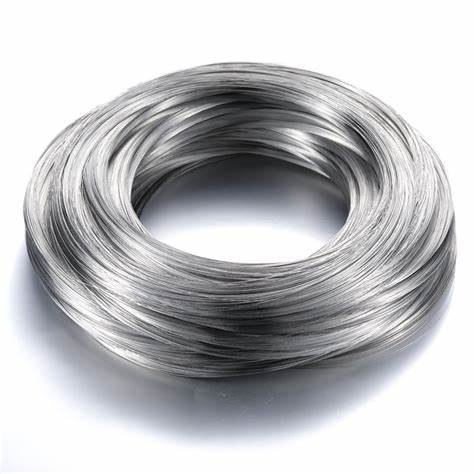Stainless Steel 316TI Wires
Ferrobend is a renowned manufacturer of stainless steel 316Ti wires. With years of experience in the field, the company has perfected the manufacturing process, ensuring that each wire produced meets the highest quality standards. he non-reactive nature of 316Ti makes it ideal for applications in food processing, pharmaceuticals, and medical industries, where hygiene is paramount. It does not leach toxic substances into the environment, making it a safe and dependable choice for these industries. Once the molten metal is alloyed, it is cast into billets or continuous cast shapes that are suitable for further processing. The casting process is done with precision to minimize defects and maintain the uniformity of the alloy.

Ferrobend starts by sourcing high-quality stainless steel billets or coils. The selection of raw materials is crucial in ensuring that the final wire product possesses the necessary properties for high performance and reliability.
Ferrobend ensures that the final wire product has an impeccable surface finish. Whether it's a polished, bright, or matte finish, the company employs advanced techniques to deliver a smooth and aesthetically pleasing wire surface. The wires are carefully inspected to meet the industry’s standards for surface quality.
Stainless steel 316Ti wires from Ferrobend are the ideal choice for industries requiring high strength, excellent corrosion resistance, and versatility. With a robust manufacturing process, stringent quality control, and a focus on customer satisfaction, Ferrobend has established itself as a trusted leader in the production of stainless steel 316Ti wires. Whether for marine applications, chemical processing, or medical device manufacturing, Ferrobend’s stainless steel 316Ti wires offer unmatched reliability and performance, ensuring that your products and processes run smoothly in even the most demanding environments.
The stainless steel is melted in an induction furnace, where the necessary alloying elements, including titanium, are added to the molten metal. This step ensures that the correct chemical composition is achieved. The titanium addition is carefully controlled to ensure uniform distribution, providing maximum resistance to corrosion and improving weldability.
